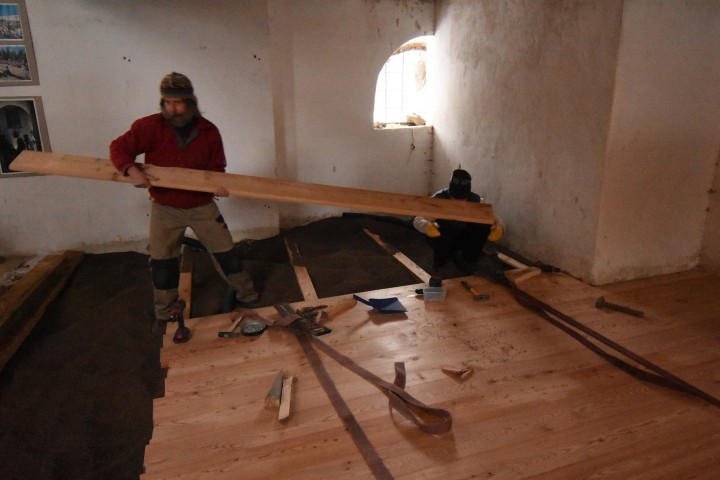
Festival Pelhřimovy – Kostel sv. Jiří
Pelhřimovy is a village on the border of Poland and Czechia. It is just as far to Prudnik or Glubczyce as it is to Krnov, but the towns are inhabited neither by Czechs nor Poles. After the expulsion of Germans and the subsequent devastation of the landscape and the farmland at the hands of the communist cooperatives, and then agricultural entrepreneurs, almost no one lives there now. The village is the site of a chateau, whose owner died a few years ago, and an original Gothic church, taken care of by the local members of Hnutí DUHA since 2005. They have been renovating the church through their own means for a number of years now, trying to make it into a space for occasional cultural and social events, including children’s camps, yoga and dance courses, and the like. Their long-term vision is to bring back residents to Pelhřimov in a new reverse wave of colonizing the village.
In 2014, an event took place in the church surroundings, which was supposed to create a temporary autonomous zone for lovers of music and independent culture, and to draw attention to the disappearing town. The impetus came from the band Bratři Orffové, who their own money, along with the Anděl prize. The Pelhřimovy Anti-festival has since taken place yearly in the late summer. Despite the fact that it lacks the usual forms of promotion, it has been receiving increasing attention. The organizers have a policy of no admittance fees and no fences, and the festival continues to be financed by volunteer donations by visitors and patrons. The program offers a wide range of events, from contemporary Czech and Polish indie culture and alternative music to various performances and slam poetry. The festival also features an architectural workshop, where young architects from the Architecture Faculty of Brno Technical University create temporary projects on a chosen theme. The festival is currently organized by a team of about six people (partly composed of the group Noir Voir) in addition to a wider group of volunteers. A strong sense of community is evident in the shared work parties, landscaping projects, and the renovations of the church itself, but also in the entire festival’s remarkably friendly atmosphere.